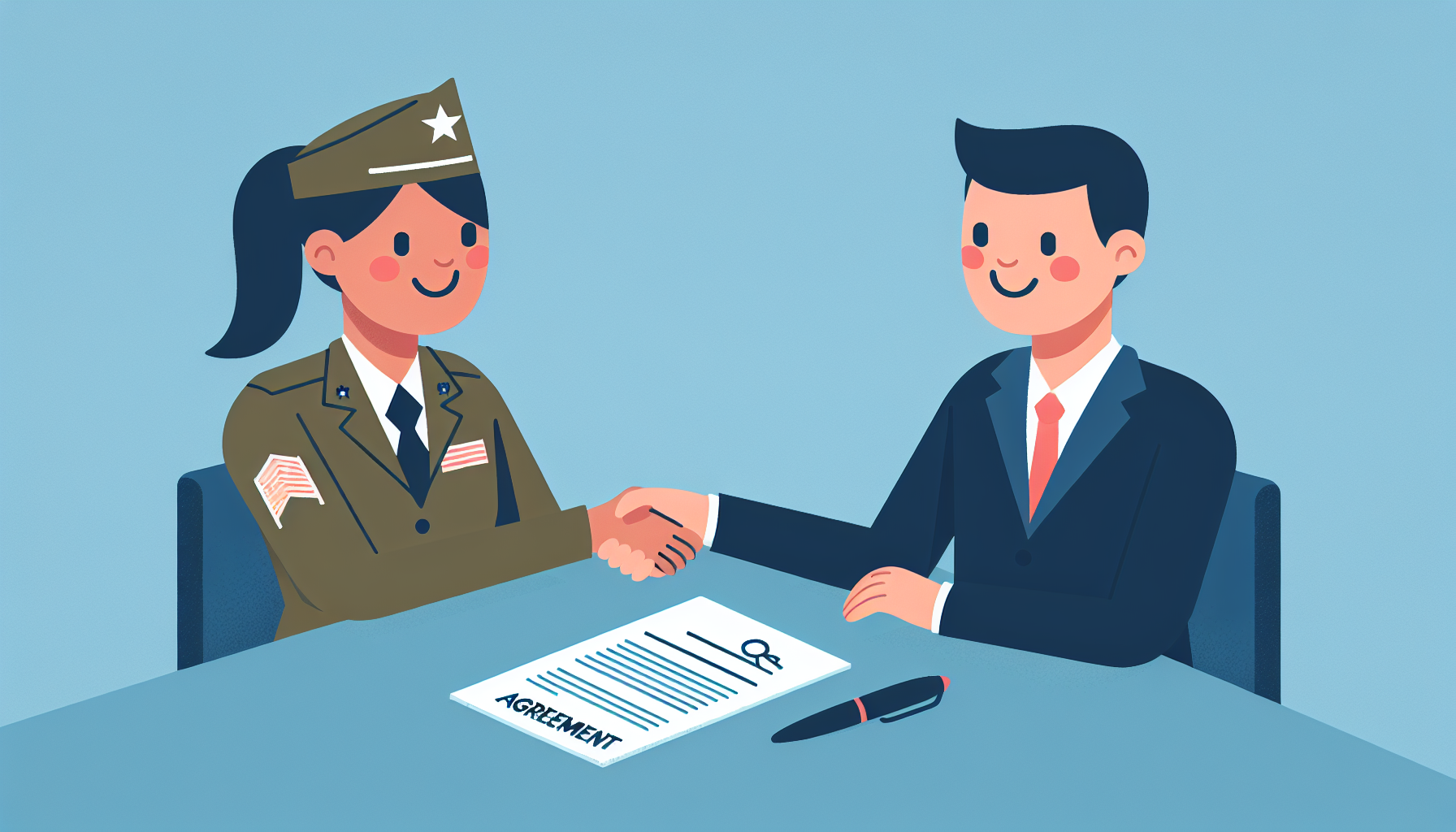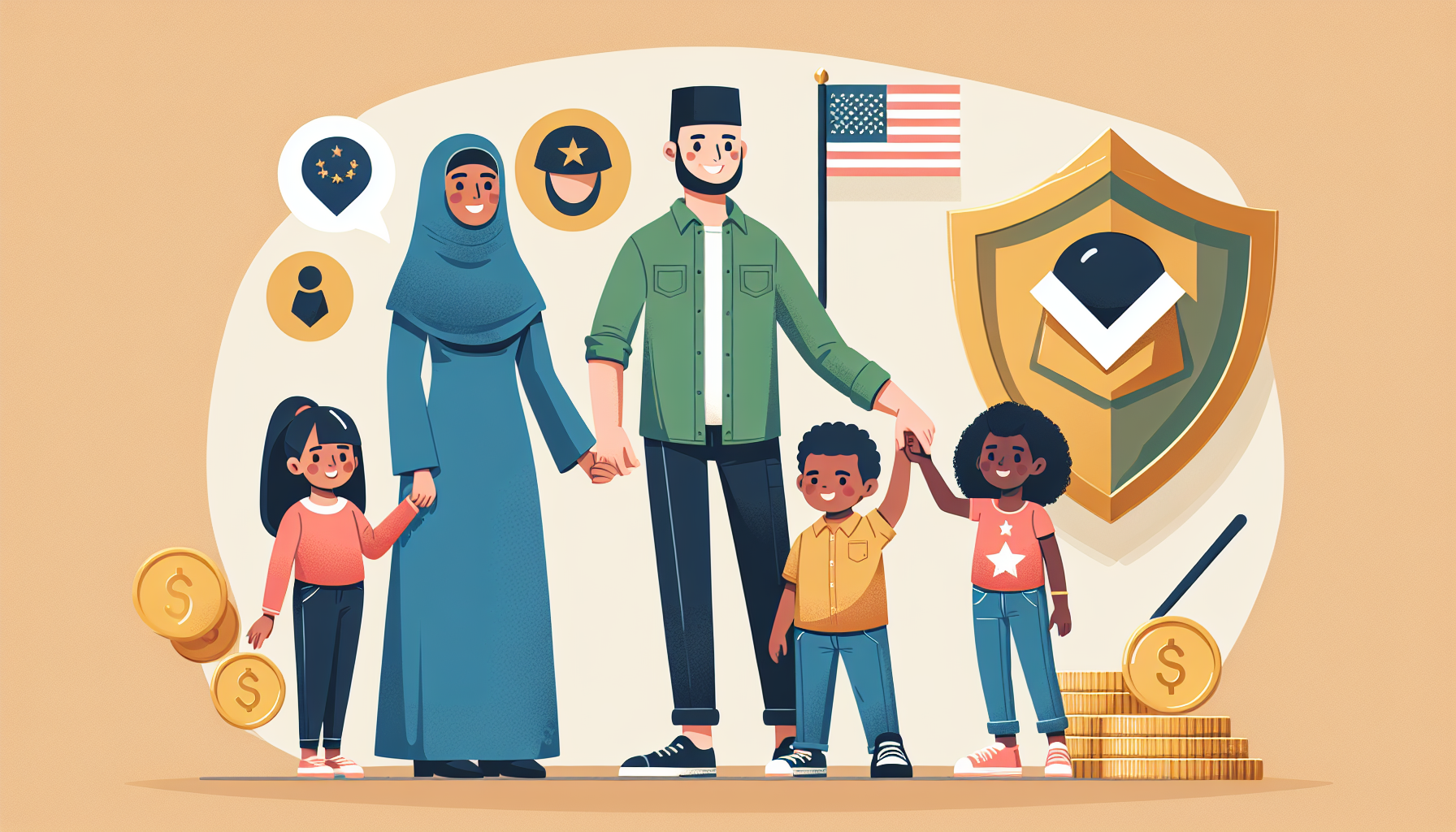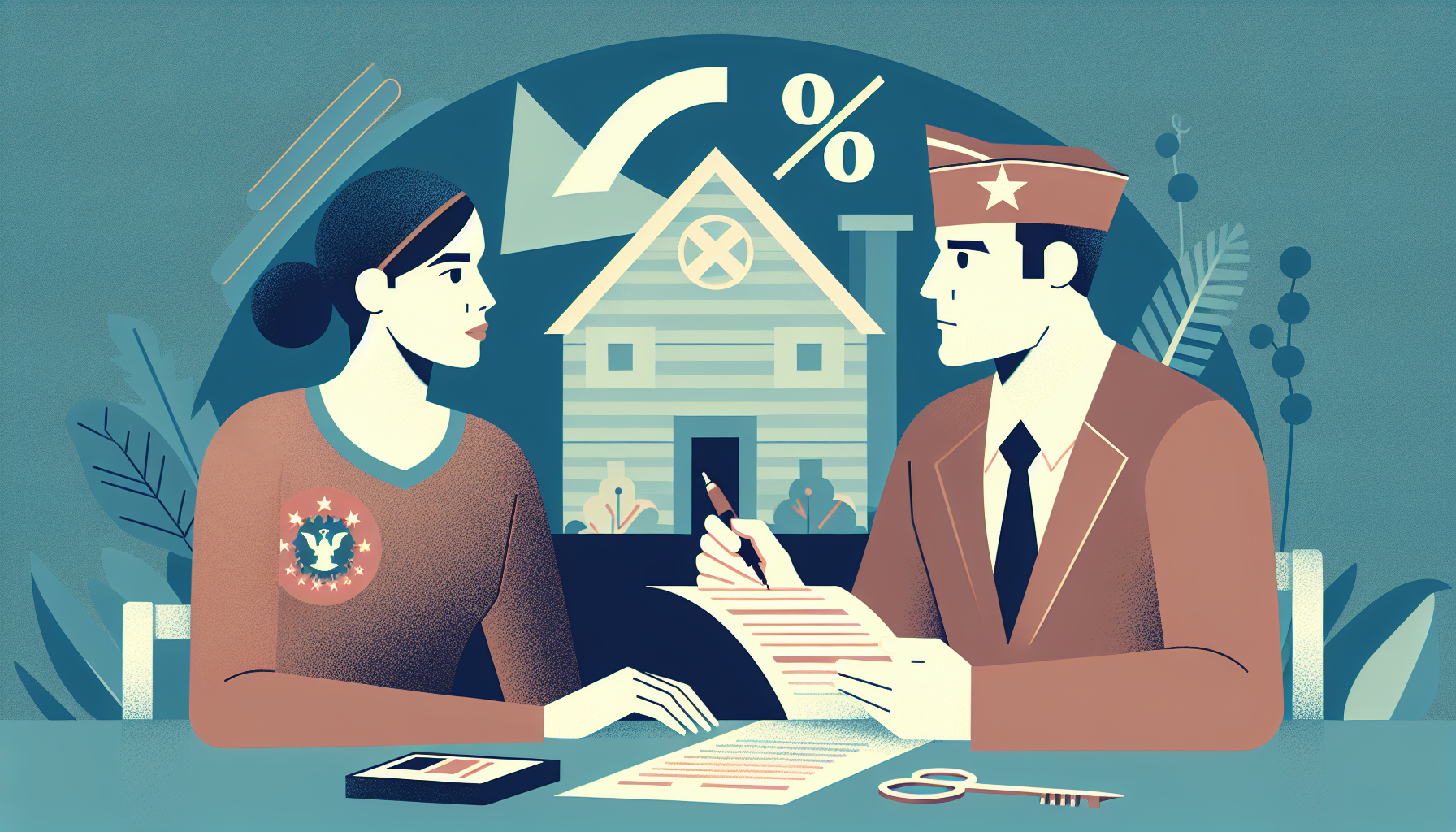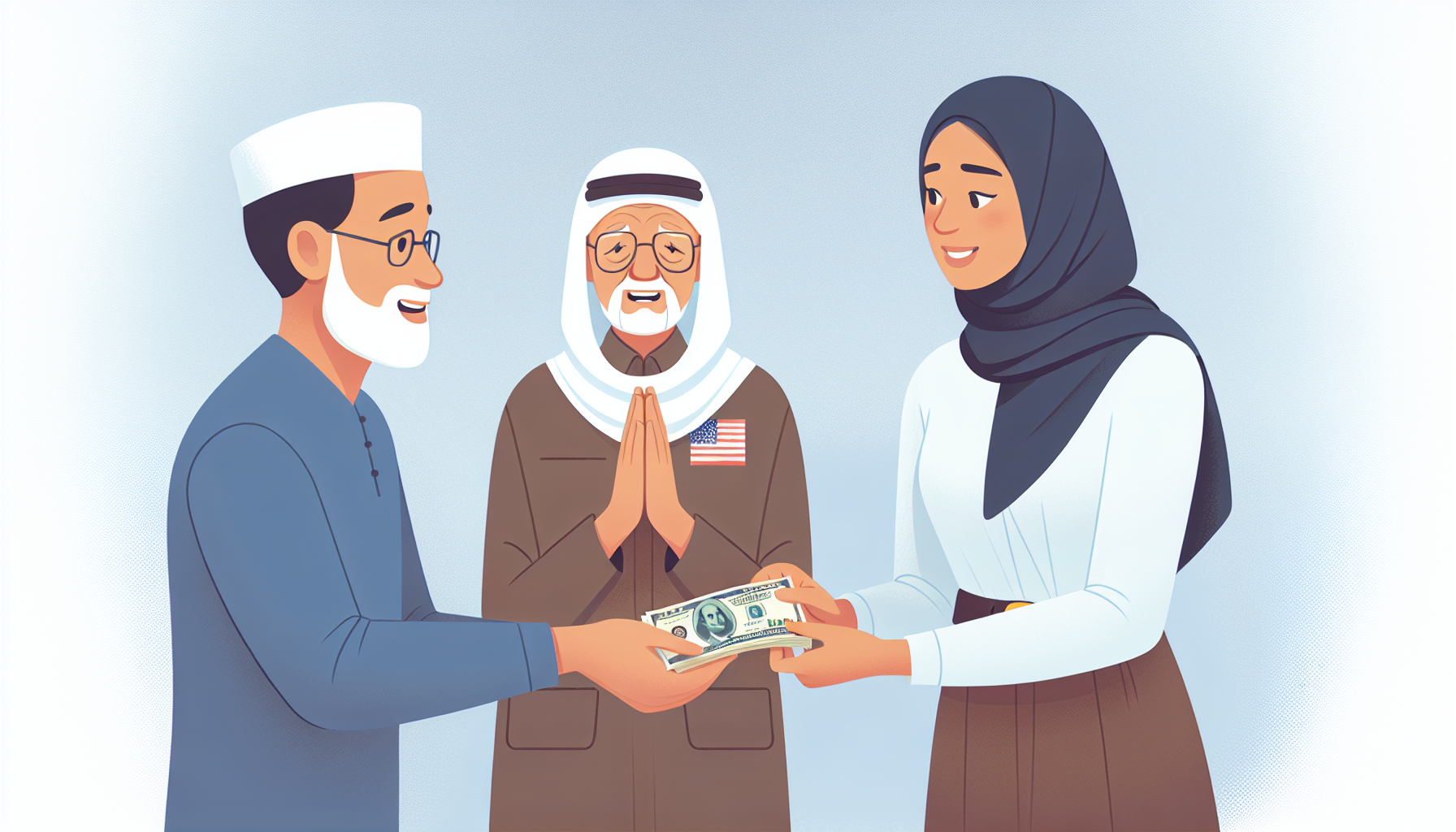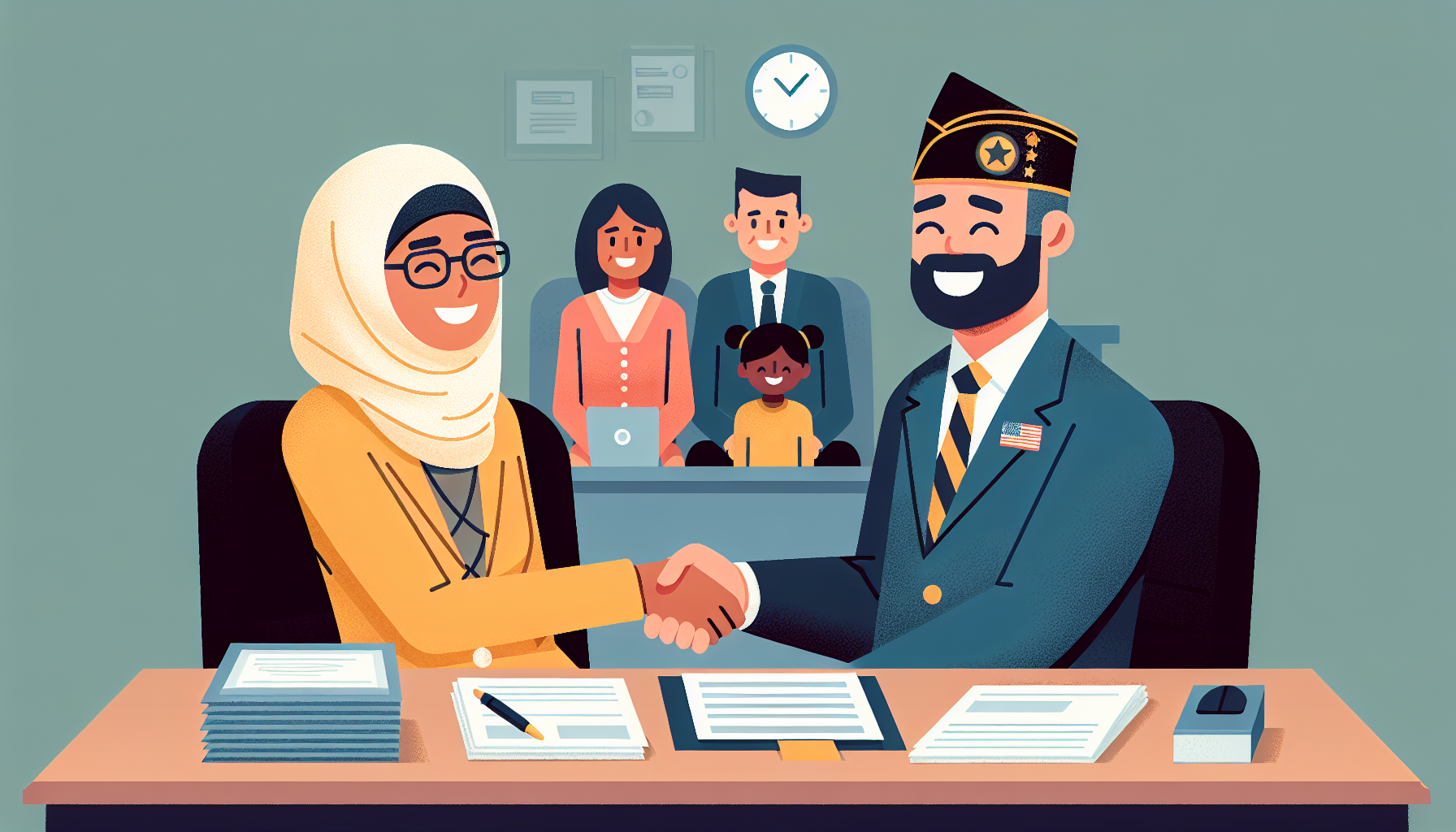Definition
Land Acquisition, in the context of VA benefits, typically refers to the process of obtaining land or property for the purpose of constructing or expanding VA facilities, such as hospitals, clinics, or even national cemeteries. These acquisitions provide support in meeting the needs of veterans and their families, ensuring access to necessary services. The Department of Veterans Affairs may secure land through various methods, including purchase, donation, transfer, or exchange.
Key Takeaways
- Land Acquisition refers to the process of obtaining land or property that can be utilized for the purpose of constructing facilities or providing services for veterans under the Department of Veterans Affairs (VA) programs and benefits.
- VA benefits guide land acquisition by ensuring that the obtained land complies with all federal, state, and local regulations, as well as any other requirements set forth by the VA, to support veterans with housing, medical care, or other essential services.
- Projects related to land acquisition are managed by the VA’s Office of Construction and Facilities Management, which coordinates all activities, such as planning, designing, and constructing facilities on the acquired land to better serve veterans and their families.
Importance
The term “Land Acquisition” is significant within the context of VA benefits, as it pertains to the process through which veterans, as well as their eligible family members, can secure land for housing, farming, or businesses.
Land acquisition is crucial because it empowers veterans, who have made numerous sacrifices in their service to the country, to gain access to affordable property and utilize it for various purposes, thus contributing to their economic stability, social reintegration, and overall wellbeing.
By understanding land acquisition and the available support and programs offered by the Department of Veterans Affairs, veterans can more effectively leverage these benefits to achieve their long-term personal, financial, and professional goals.
Explanation
The primary purpose of the Land Acquisition in VA benefits is to allow eligible veterans and service members to secure land in order to build a home that suits their needs and preferences. This program aims to support those who have served our country by providing them with the financial resources and flexibility to purchase land, either as a stand-alone transaction or in conjunction with the construction of a new dwelling.
By offering assistance in acquiring land, the VA benefits program enables veterans and service members to create and establish a comfortable and accommodating living environment tailored to their individual requirements and desires. The Land Acquisition process plays a crucial role in providing a solid foundation for veterans and service members as they transition from military to civilian life.
Through various assistance programs, like VA-backed loans, the VA benefits program offers favorable financial terms and conditions to help them secure the land and finance the costs of construction. Building a home on their own land allows veterans and service members to create an ideal living space, which can be especially important for those with service-related disabilities who may need specific accommodations and modifications.
Ultimately, the ability to acquire land through the support of the VA benefits program is a valuable resource that contributes to the long-term stability and wellbeing of our nation’s veterans and their families.
Examples of Land Acquisition
Veteran Home Loan for Land Purchase: In 2017, U.S. Marine Corps veteran Aaron and his family were looking to purchase a piece of land in rural North Carolina, where they could build their dream home. With the help of the VA land loan program, Aaron was able to secure the required financing under the VA’s benefits for land acquisition. The loan enabled him to buy the 10-acre plot of land, and Aaron and his family began designing their new home shortly after the transaction was completed.
Agricultural Land Purchase for a Veteran-Owned Farm: Sarah, a U.S. Army veteran, aspired to start her own agricultural business after retiring from the military service. She came across a 50-acre farmland in Texas perfectly suited to her agricultural goals. Sarah applied for a VA land loan with the assistance of the Veterans Affairs benefits for land acquisition and was successful in securing the necessary financing. The loan allowed her to acquire the farmland and establish a thriving veteran-owned farm.
Development of a Veteran Housing Community: In 2018, a non-profit organization dedicated to supporting homeless and low-income veterans in Arizona utilized VA Benefits for land acquisition to purchase a 5-acre parcel. The organization was able to secure funding through a VA backed loan and purchased the land with the purpose of building affordable housing units specifically for veterans. The project, known as the Veterans Village, resulted in the construction of numerous tiny homes that provide a safe, stable, and secure living environment for veterans in need.
FAQ: Land Acquisition VA Benefits
What are Land Acquisition VA Benefits?
Land Acquisition VA Benefits are financial assistance provided by the Department of Veterans Affairs (VA) to eligible veterans, service members, and their families to help them purchase land for residential or other purposes.
Who is eligible for Land Acquisition VA Benefits?
Eligibility criteria for Land Acquisition VA Benefits typically include the following: being a veteran, service member, or a surviving spouse; having a valid Certificate of Eligibility (COE); meeting the service requirements, and meeting specific credit and income requirements.
Can I use my VA Home Loan benefits to finance a land purchase?
Yes, you can use your VA Home Loan benefits to finance a land purchase, as long as the plan involves constructing a primary residence on the land within a specific timeframe. However, the VA does not guarantee loans exclusively for land purchases.
What types of land can I purchase with VA Land Acquisition Benefits?
You can purchase various types of land, including residential, commercial, or agricultural lots, as long as the purpose aligns with the guidelines set by the VA and the lender. However, you should verify the specific requirements with your VA-approved lender.
Can I use VA Land Acquisition Benefits to build a home?
Yes, VA Land Acquisition Benefits can be used for construction purposes. You can apply for a VA Construction Loan to finance the land acquisition and construction of a new primary residence. Always verify the specific requirements with your VA-approved lender.
Related VA Benefit Terms
- Property Appraisal
- Land Surveying
- Eminent Domain
- Environmental Assessments
- Zoning Regulations
Sources for More Information
- U.S. Department of Veterans Affairs
- VA Benefits and Health Care
- National Guard
- National Veterans Legal Services Program
 Benefits.com Advisors
Benefits.com Advisors
With expertise spanning local, state, and federal benefit programs, our team is dedicated to guiding individuals towards the perfect program tailored to their unique circumstances.
Rise to the top with Peak Benefits!
Join our Peak Benefits Newsletter for the latest news, resources, and offers on all things government benefits.



















